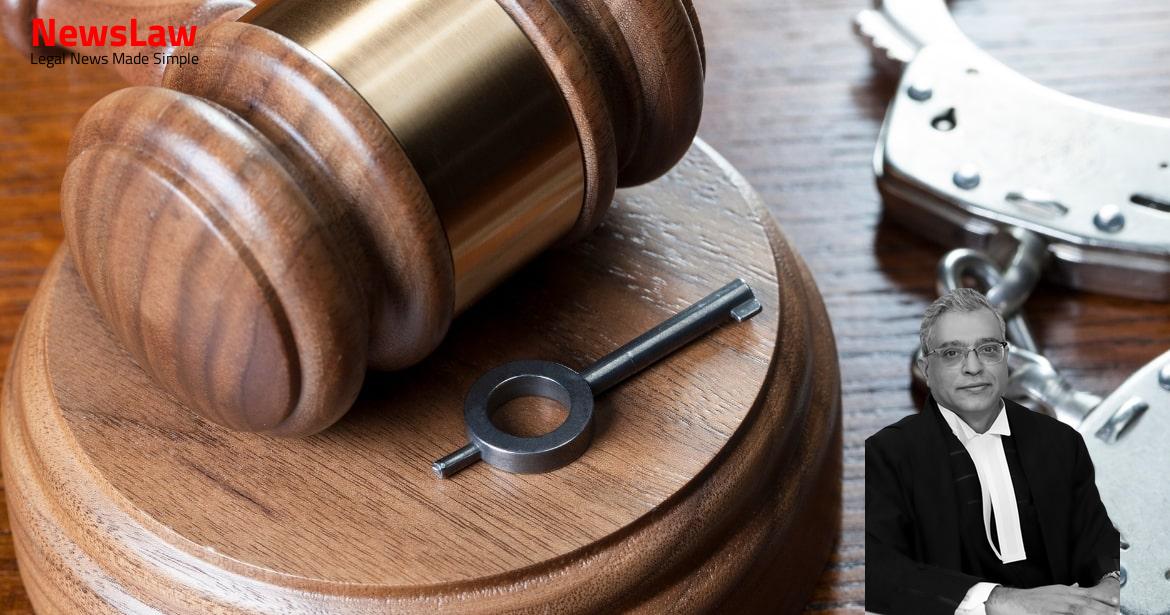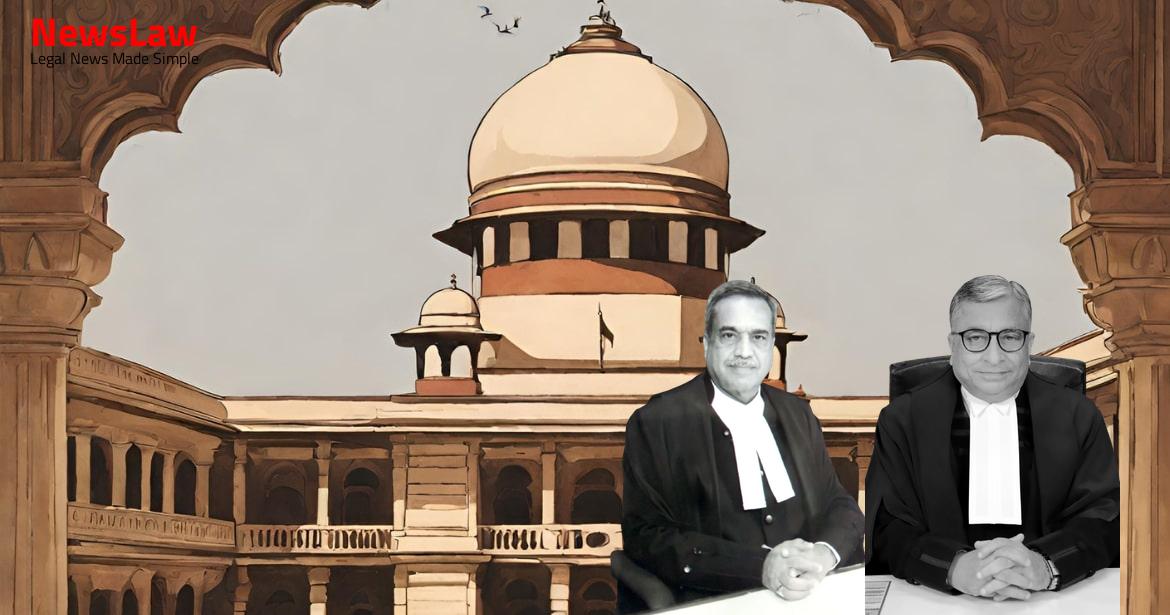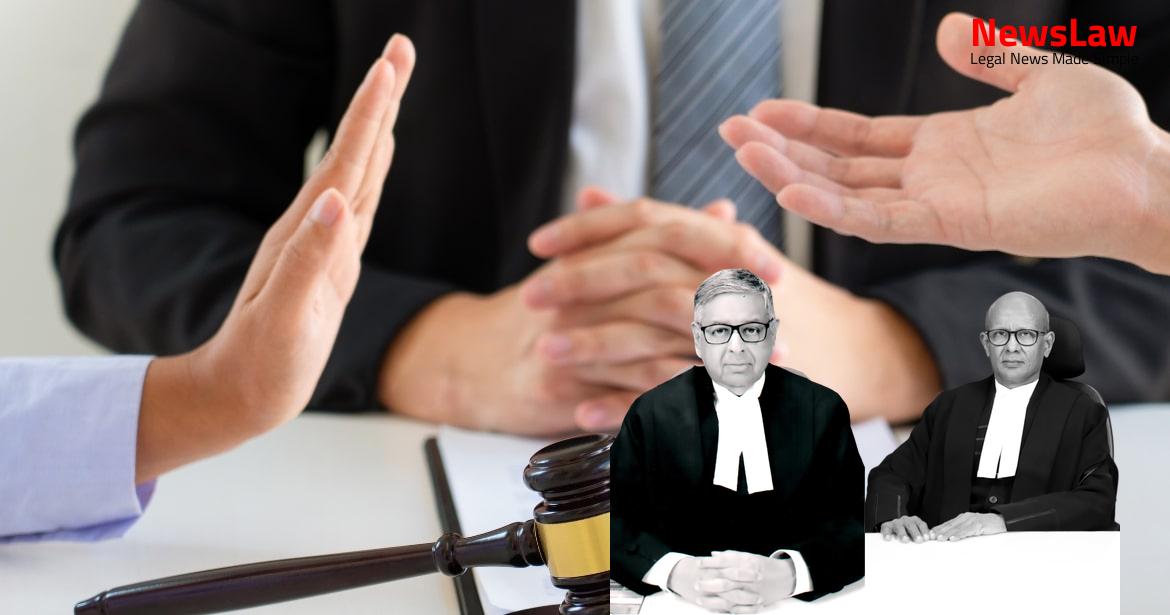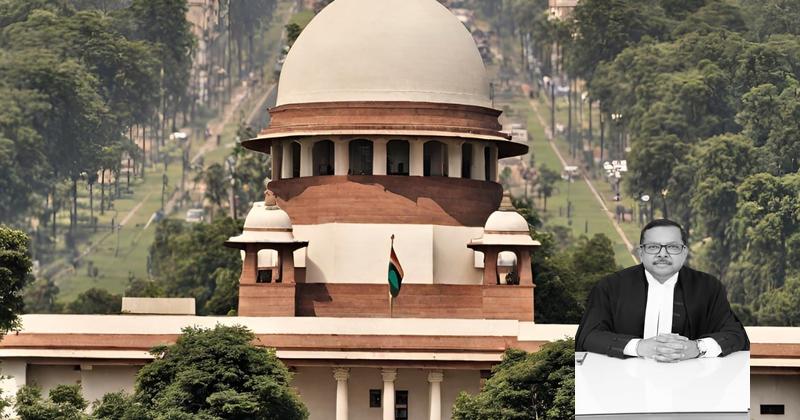In a recent legal case involving construction malpractices, the court’s thorough legal analysis has come under scrutiny. The case delves into the complexities of proving criminal intent and lack of conclusive evidence in a sensitive matter. The challenge lies in interpreting the law accurately and upholding justice. Let’s explore the implications and outcomes of this intriguing legal battle.
Facts
- Complaint made regarding malpractices in construction at Surjanpur and Mankot
- Amount reduced from Rs.68,776/- to Rs.45,582/- at Surjanpur after complaint
- Amount reduced from Rs.34,580/- to Rs.25,911/- at Mankot by the appellant
- Inquiry report led to the registration of a crime
- Appellant convicted for reducing amounts in Measurement Book
- Inquiry officer appointed after complaint received
- Excess expenditure found at Mankot and Surjanpur
- False record creation by cutting in the records
- Appeal filed before the High Court, decision upheld
- The appellant was charged with conspiracy and receiving advances for construction work in two different primary schools.
- The first instance involved receiving Rs. 15,000 out of an approved amount of Rs. 91,500 for construction work at Primary School, Mankot.
- The second instance involved receiving Rs. 28,000 out of an approved amount of Rs. 80,000 for construction work at Primary School, Surjanpur.
- The co-accused, Bhagwan Sahai, submitted inflated expenses in muster rolls and construction vouchers to cover up the misappropriation.
- The accusation was supported by evidence in the form of manipulated financial records and discrepancies in the reported expenditures.
Also Read: Presumption of Genuine Endorsements in Cheque Case
Arguments
- Appellant’s counsel argues lack of material to show demand or abuse of position for personal gain
- Conviction under specific sections of PC Act deemed not tenable without evidence of attempt to obtain valuable thing
- Lack of evidence for willful intent to defraud under Section 477A of IPC
- Request for acquittal based on lack of conclusive evidence
- State’s advocate general opposes the appeal
- Appellant’s counsel criticizes Trial Court for not considering evidence of prosecution witnesses
- Courts refrain from interfering with concurrent findings unless they are perverse or impossible.
- The Trial Court and High Court found that the appellant manipulated the record with dishonest intention.
- The appellant manipulated the record to save himself after a complaint was lodged with higher authorities.
- The case falls under Section 477A of the IPC due to record manipulation.
- The scope of interference in concurrent findings of fact is very limited.
Also Read: Medical Negligence and Compensation: A Landmark Decision
Analysis
- The appellant had no role in approving or making payments for construction work.
- Evidence shows irregularities at most, but not willful intent to defraud.
- Concurrent findings of fact can be questioned if shown to be perverse.
- Various legal principles quoted to support interference with findings of fact if necessary.
- Appellant not involved in payment sanctioning or making; evidence ignored by lower courts.
- The requirements for proving a Section 477A offense not met.
- Evidence suggests lack of criminal intent in the construction works.
- Contradictions and lack of evidence in allegations against the appellant.
- The conviction under Section 13(1)(d)(ii) of the PC Act deemed unsustainable.
- Inconsistencies in the record keeping and corrections made.
- The role of the Gram Sewak in payment transactions highlighted.
- Findings of the Investigating Officer support lack of criminal intent in payments.
- Lack of supervision or safeguards at work sites acknowledged.
- The appellant raised concerns about irregularities in construction work to the District Magistrate.
- Mistakes in totaling the Measurement Book acknowledged but correctible.
- No evidence to show joint corrections by accused parties.
- For an offence under Section 13(1)(d)(ii) read with Section 15 of the PC Act, proof of a public servant attempting to obtain a valuable thing or pecuniary advantage is necessary.
- No evidence of such attempt has been found in the current case.
- Both the Trial Court and the High Court failed to consider relevant admissions made by key witnesses PW8 and PW14.
- The admissions by PW8 and PW14 were considered vital by the court.
- Ignoring these vital admissions while convicting the accused would render the judgments as perverse.
Also Read: Remand of Writ Petition for Restoration and Decision on Merits
Decision
- The appeal is allowed.
- The order of conviction and sentence by the Special Judge and the High Court are quashed and set aside.
- Pending applications are disposed of.
- The bail bonds are discharged.
- The appellant is acquitted of all charges.
Case Title: SHIV KUMAR SHARMA Vs. THE STATE OF RAJASTHAN (2022 INSC 765)
Case Number: Crl.A. No.-001050-001050 / 2022



